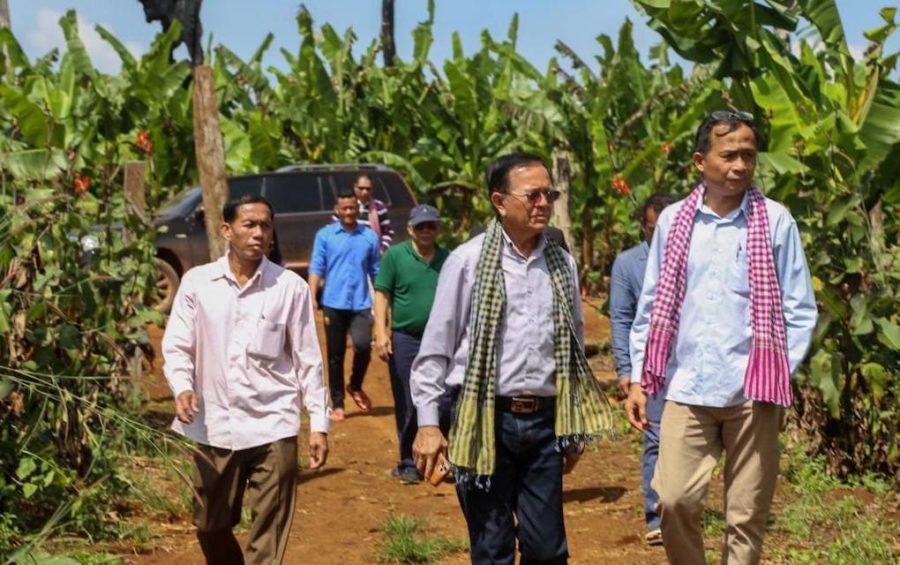Kem Sokha drew the clearest line between him and CNRP co-founder Sam Rainsy on Sunday. “Sam Rainsy and Kem Sokha are not the same person,” said Sokha on Facebook, reacting to the reactivation of the Candlelight Party and its party congress on Saturday.
The Candlelight Party, formerly the Sam Rainsy Party, represents the half of the CNRP that once vied against Sokha’s Human Rights Party until their merger in 2012.
Hours after Sokha’s post, his daughter and CNRP public affairs officer, Kem Monovithya, inflamed the open wound by telling VOD that Rainsy was a “narcissistic, abusive, gaslighting, sociopathic partner to Kem Sokha,” and accused Rainsy and his faction of maligning her father.
The comments stirred a flurry of speculation and commentary online, with armchair political analysts in and outside the country trying to make sense of what this meant for the CNRP — once the most credible political threat to the CPP’s stranglehold on power.
Fresh News took some time away from publishing pro-government announcements and jumped on the story, publishing a few articles on the public spat between the two founding factions of the CNRP.
Sek Socheat, executive director of the Mindset Development Organization — an NGO that says its aim is to change attitudes, such as around environmental hygiene, to develop society — said Sokha’s comment could have been about self-preservation, given his ban from political activity.
Sokha is still under court supervision and is banned from doing politics by the 2017 Supreme Court ruling to disband the CNRP. His trial has stalled since March 2020, with the government pointing to the Covid-19 pandemic as the reason for the delay.
“The fact that he does not want to be included in political activities is the right thing because he is already in trouble and he is afraid of being sentenced for his treason charge where he has not yet been found guilty,” Socheat said.
Rainsy has not responded to requests for comment and has only said on Facebook that Sokha’s comments were made under duress and pressure from Hun Sen’s government. Other members of the CNRP — from either faction — haven’t come out as vociferously about the public spat.
Sokha’s second daughter, Kem Samathida, took to Twitter to allege that her father was targeted by Rainsy‘s allies who “launched constant smear campaigns against him and our family on Khmer social media.” The Sokha faction kept silent for the sake of “unity,” Samathida tweeted.
She also attacked Rainsy for alleged comments he made about Sokha and his family.
“My family put up with Rainsy’s smears for decades, from racist false claims that we were Vietnamese to sexist attacks on my sister following my father’s arrest,” Samathida wrote online.
Since the dissolution of the CNRP, there have been a handful of parties created by opposition officials who were made to ask for amnesty to lift the Supreme Court ban on them.
Close allies of Sokha, Ou Chanrath and Pol Ham, have formed the Cambodia Reform Party recently and have been actively campaigning in the provinces. They are expected to tap into opposition support in the upcoming 2022 and 2023 elections. Monovithya, Sokha’s daughter, said the Reform Party had been asked to refrain from using Sokha’s name and image in their politicking.
The crux of the severing of ties seems to be the Candlelight Party congress from Saturday. Sokha said the congress highlighted that Rainsy’s faction had “walked away from the original principles and spirit of unity.”
Social researcher Seng Sary said the fracture in the CNRP suggested a return to a three-way contest involving the CPP and two separate parties aligned respectively to Sokha and Rainsy.
“For me, if three political poles really happen, it would seem to play into the political game of Hun Sen.”
Sary added that Sokha distancing himself from Rainsy could mean the former returning to politics at the cost of his exiled colleague.
Em Sovannara concurred with Sary, though pointed out that Sokha by himself may not have the same political weight as Rainsy brought to the combination.
“The real political force is not with Kem Sokha,” said Sovannara, who is a political science professor. “With this division, Kem Sokha does not seem to completely take the united strength of the Cambodia National Rescue Party with him.”













